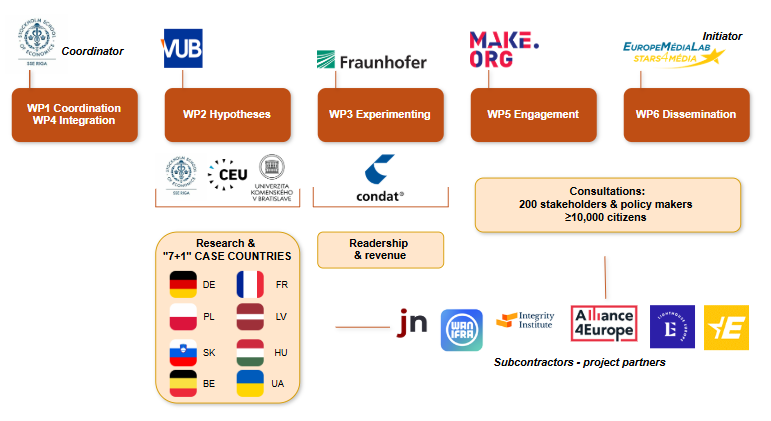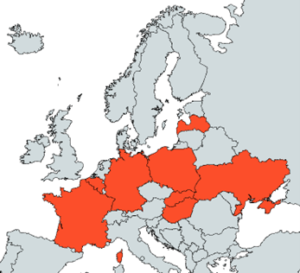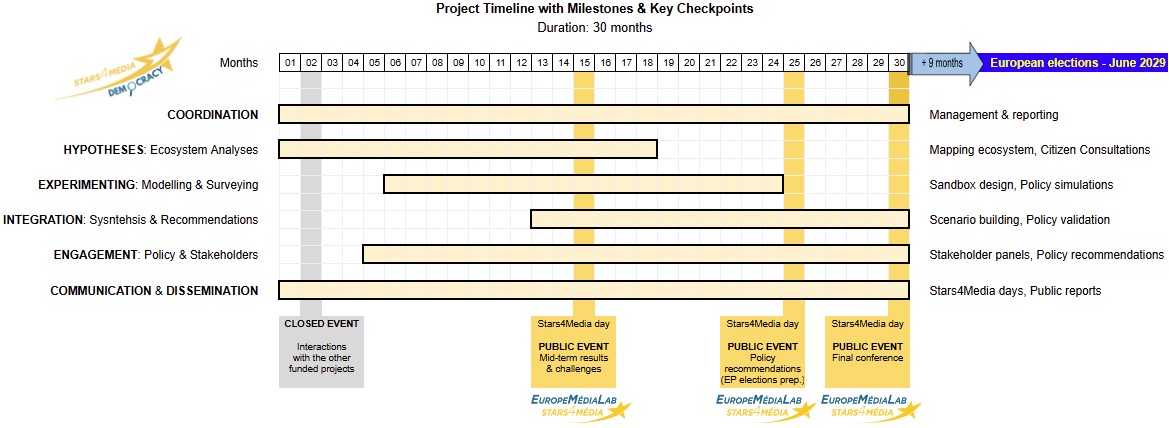 Towards Trusted Information Ecosystems in Europe
Towards Trusted Information Ecosystems in Europe
Main Hypothesis to be tested
- Trust Indicators: Independent “Trust Indicator Providers” (TIPs), similar to credit rating agencies, will certify trustworthy sources and provide signals to algorithms. Incentives will reward quality content with reach and advertising revenues.
- Trusted European Platforms (TEPs): A “Democracy Shield” against toxic networks like X/Twitter, designed for sovereignty, transparency, and resilience. TEPs would combine interoperability, profile portability, trust-based advertising, and citizen control.
- Dual approach – Sticks and Carrots: Firm enforcement of EU laws plus incentives for quality actors.
Executive Summary
Context “HORIZON-DEMOCRACY”
HORIZON-DEMOCRACY is part of the European Union’s Horizon Europe research and innovation programme, under Cluster 2: Culture, Creativity and Inclusive Society. This cluster funds projects that strengthen democracy, enhance citizen participation, and safeguard Europe’s cultural heritage, while also addressing significant social, economic, and technological challenges. By bringing together experts from across the social sciences and humanities, it aims to provide practical, evidence-based ideas for fairer policies, helping Europe move towards greener and more digital futures while staying socially just, inclusive, and resilient.
Challenge
Disinformation threatens democracy, undermining civic trust, media pluralism, and public debate. Despite EU progress (DSA, DMA, EMFA, AI Act, Code of Practice on Disinformation), responses remain fragmented and reactive. Meanwhile, toxic networks exploit AI, weak regulation, and fragile media markets.
Consortium
- Coordinator: SSER (Latvia, media economics).
- Initiator: Europe MédiaLab (Belgium, policy leadership).
- Research Universities: VUB (Belgium), Comenius (Slovakia), CEU (Austria).
- Applied Research & Modelling: FraunHofer and Condat (Germany).
- Impact Centres: Make.org (France, citizen engagement), Europe MédiaLab (Belgium, policy leadership).
Project Partners:
WAN-IFRA, Euractiv, Jnomics, Alliance4Europe, Integrity Institute, Lighthouse Europe.

Project Response
Stars4Media-DEMOCRACY will strengthen Europe’s capacity to detect, analyse, and counter disinformation through pilots in at least six EU Member States and Ukraine. It will support 300 journalists, 80 SMEs, and 500,000 citizens—including vulnerable groups—while delivering FAIR-compliant datasets, open-source tools, and practical policy guidelines. By embedding results into frameworks such as EDMO, the Digital Services Act, and the European Democracy Action Plan, the project will ensure lasting impact on democratic resilience, media integrity, digital literacy, and AI-driven disinformation challenges.
This project takes a systemic approach: disinformation is not just about falsehoods but about ecosystems—media, platforms, citizens, incentives. The project proposes transformative, evidence-based solutions to strengthen Europe’s information space.
Methodology
- Comparative research on disinformation dynamics.
- Behavioural experiments on citizen interaction with content.
- Policy simulations and sandbox modelling.
- Co-creation workshops with stakeholders.
- Three validation hurdles: data modelling, user surveys, and stakeholder acceptability.
Geographical scope
7+1 countries (FR, DE, BE, PL, LV, HU, SK + Ukraine), with a focus on CEE vulnerabilities.
Objectives
- Advance knowledge of disinformation ecosystems.
- Develop tools (semantic modelling, sandbox simulations).
- Strengthen institutions through trust indicators and TIPs.
- Test policy options, including TEPs.
- Engage citizens and stakeholders in co-design.
Expected Impact
- Improve information quality and media resilience.
- Provide EU institutions with tested options ahead of the 2029 elections.
- Offer scalable, sovereign alternatives to US/Chinese platforms.
Timeline

